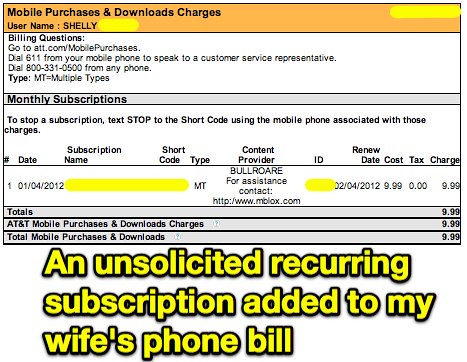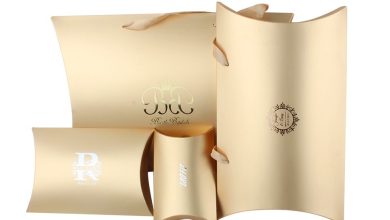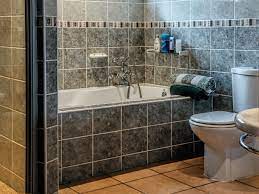
Fixed deposits and recurring deposits are the most popular investment options available in our country. When you are an individual who wishes to invest in a risk-free investment option but still wants to gain more returns, then these two are your ideal choice. The returns for these two investment options don’t depend on the market for its changes, so they are safe and secure.
Though both investment options offer guaranteed returns and higher interest rates, each is different. You have to understand both thoroughly, then choose the option that perfectly suits your financial requirements. It will help if you consider the factors like minimum investment amount, tenure, and the interest rate you can get before making your investment choice.
What Is A Fixed Deposit?
A fixed deposit is an investment in which you can invest a lump sum together for a specific tenure at a fixed interest rate which you can get in a particular pattern. Depending upon your financial needs, you can select the interest payout option as monthly, bi-monthly, quarterly, half-yearly, or annual basis.
A fixed deposit investment is of two types: cumulative fixed deposit and non-cumulative fixed deposit. With a cumulative fixed deposit, you will get the amount invested along with interest at maturity. Whereas with a non-cumulative fixed deposit, you can avail interest at a regular interval.
The fixed deposit tenure ranges from 7 days to 10 years that you choose to depend upon your financial requirements. The fixed deposit interest rate will vary from 2% to 12%, depending on the tenure you choose and the amount you invest.
What Is A Recurring Deposit?
A recurring deposit is an investment option. You will invest a constant amount each month for a fixed tenure and interest rate. You will get the money you invest and the interest it gains at the maturity of your recurring deposit investment.
The interest rate for a recurring deposit will remain the same throughout the tenure. You can enjoy your investment till its maturity with the interest you choose. The interest rate for a recurring deposit will vary depending on the amount you invest and the tenure you choose. The recurring deposit tenure will range from 6 months to 10 years, which you can choose as per your requirements. For the recurring deposit tenure, you can select it depending upon your financial goals. You can either choose short term, mid-term or long term recurring deposits.
Benefit Of FD Or RD:
Fixed deposits and recurring deposits are the best investment options that come with a wide range of benefits. Though both have some standard features, there are differences that you cannot deny.
Assured Returns:
The interest you gain for a fixed and recurring deposit investment will be the same throughout the tenure. Both fixed deposit and recurring deposit investment doesn’t depend on the market changes for their returns so that you will get guaranteed returns.
Interest Payout Option:
Fixed deposits are proven to be flexible when it comes to interest payout options compared to recurring deposits. With a recurring deposit, you can only get the interest at its maturity. Whereas with a fixed deposit, you can earn interest payout periodically. Depending upon your financial requirement, you can get monthly, bi-monthly, quarterly, half-yearly or annual.
Flexible Tenure:
When you make your investment with a fixed deposit investment, your tenure will range from 7 days to 10 years. You can choose the term depending upon your financial requirements. Whereas when you invest in a recurring deposit, the tenure ranges from 6 months to 10 years, which you can choose upon your needs.
High-Interest Investments:
FD interest rates and RD interest rates both are higher when compared to other investment options. Depending on the amount you invest, the tenure you choose, and the financial provider, the interest rate varies. But when compared to other investment options, these investments offer higher interest rate options.
Low-Risk Investment:
Both recurring and fixed deposit investment doesn’t involve the market changes for its returns. So both are not at risk when there are any market changes.
Premature Closure:
Premature closure means closing the deposit before its maturity. With a fixed deposit, you will have an option to prematurely close the fixed deposit with a small percentage of the investment amount as a penalty. Though the same happens in the case of a recurring deposit, you can get only the amount you have invested so far. The penalty percentage will also be from the amount that you have currently invested.
Tax Benefits:
With a tax saving fixed deposit, you can reduce the amount of income tax you pay. Below section 80C of the Indian Income Tax Act, when you invest in a tax-saving fixed deposit, you can benefit from a tax exemption of up to Rs.1,50,000. Though the same applies to recurring deposit investments, the options for investment that you get will be limited.
You can get a TDS refund for both fixed and recurring deposit investments. TDS is applied when the amount of interest gained crosses a certain amount in the current financial year. Depending upon the income slab you belong to, the TDS limit varies. It remains the same for a recurring and fixed deposit investment.
FD Vs RD – A Comparison:
Here is a comparison between RD and FD for getting a better understanding of both investment options:
| Parameters | Fixed Deposit | Recurring Deposit |
| Interest Rates | The interest rate for fixed deposits will range from 2.25% to 7.25%. | The interest rate for recurring deposits will range from 2.50% to 8.50%. |
| Minimum Deposit Amount | The minimum deposit needed for opening a fixed deposit account is Rs.1000. | The minimum deposit required for opening a recurring deposit can be as low as Rs.500. |
| Interest Payout Options | With a fixed deposit investment, you can get interest payout options regularly. The interest payout option can be monthly, quarterly, half-yearly and annual basis. | With a recurring deposit investment, you can get the deposit interest only by the deposit maturity. |
| Premature Withdrawal / Closure | Premature withdrawal is not possible with a fixed deposit investment. When you choose to withdraw before maturity, you will have to pay a certain percentage of the investment amount as a penalty. Usually, the penalty will range from 0.5% to 2%, depending upon the financial provider you choose. | In the case of a recurring deposit investment, any partial or mid-term withdrawal is not allowed. But you can discontinue the deposit in between tenure. In that case, you can calculate the maturity amount depending on the premature closure. |
| Investment Habit | With a fixed deposit investment, you will have to make a one-time investment to invest a lump sum together. | Whereas with a recurring deposit, you will invest a certain amount regularly for a specific tenure. With a recurring deposit, you can build a habit of saving regularly. |
Fixed Deposit And Recurring Deposit – Which Deposit Can Help You Earn More?
When you properly compare fixed and recurring deposit investments, you can witness the one offering you a better income. Here is an example to help you with the analysis. When you invest Rs.30,000 for one year and Rs. 2,500 per month in fixed deposit and recurring deposit, respectively. Each year the fixed deposit amount will increase until it matches the recurring deposit investment in a year.
But when you watch the analysis thoroughly, you can see that a recurring deposit investment doesn’t gain more than a fixed deposit. But that doesn’t mean a recurring deposit is not a better investment option. Sometimes we will have to save a little each month for a certain period to pay for something higher. In those cases, a recurring deposit will be your best choice. So the better investment option will depend upon your requirements.
What Should You Choose FD Or RD?
When you have a considerable amount to invest in a single go, a fixed deposit is the best investment choice. But when you can’t afford to pay a lump sum together and want to save bit by bit each month. Small amounts for getting a higher amount at maturity, then a recurring deposit is the option suitable for you.
The first important thing that you must do is analyze your financial requirements and the financial situation. When you get a perfect analysis, you know how much you can afford and how much you need in the future. When you have a lump sum that you want to keep safe, choose a recurring deposit investment.
Whereas when you can save a little each month and need a lump sum at a specific time in the future, a recurring deposit investment is the best choice for you. When you find out the investment option you want to invest with, you should analyze it separately.
When you consider your investment with a fixed deposit, you should use the online FD calculator to determine the returns you can get before making your investment. When you know the returns you can get from a particular investment, you will know which option will fulfil your financial requirements.
Whereas when you want to invest in RD, use the online RD calculator to determine the returns. You can sort out the investment amount and tenure depending upon your financial requirements and capabilities. Be wise in choosing the right financial provider to get your investment from when you don’t want to lose your money.





